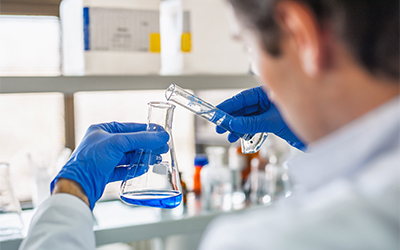
Diabetes is a chronic metabolic disease often characterized by high blood sugar. The patient who is diabetes positive has organs functioning diversely. This often leads to recovering slowly from burns, cuts, and other minor or severe injuries. Generally, people recover quickly from injuries, burns, cuts, etc., but the case with diabetes patients is not the same.
People with diabetes have a slower healing capacity, and there are some reasons for this slower recovery. The reason for a slower recovery is high glucose levels in their blood, which is triggered by diabetes, and it also affects and slows down their blood circulation. Another reason is the inability of white blood cells in the patient’s body that wouldn’t help them fight off infections and close up the wounds. Moreover, diabetic neuropathy also causes numbness in the affected areas.
This is where getting proper care and treatment for a diabetic patient becomes mandatory because leaving them unattended could lead to leg amputation. So, early detection is important, which you can get through a lab test at home service in Dubai. This will help you understand your condition and take better measures for preventing injuries and taking the right measures if an injury occurs.
How Does Diabetes Affect Wound Healing?
It is mentioned that people suffering from diabetes mellitus are often found with a slow wound-healing process. This diagnosis of diabetes mellitus leads to leg amputation. Moreover, it also impedes high blood sugar, which stops proper healing while affecting the blood flow in the usual way. In addition to this, nerve functioning and improper immune responses also occur through this.
When talking about normal healing, the platelets in the blood prevent the body from further bleeding by forming a clot as they act as a plug to stop the blood from gushing out of the tissues. This is how the white blood cells respond to prevent infections. However, the red blood cells also provide enough oxygen to promote collagen building which becomes the foundation for the new tissues.
On the other hand, the case is entirely different when we talk about recovery in diabetes patients. Diabetes affects the production of insulin, the hormone that converts sugar into energy, as well as the body’s capacity to use insulin. High blood sugar levels prevent blood cells from functioning normally throughout the healing process. This leads to the additional consequences where diabetes affects the healing process making it slower than usual and eventually leading to diabetic foot ulcers. However, the game doesn’t stop at this, as there as more insights that you must learn about before moving forward;
- Slow Blood Circulation: Blood circulation is slower in people with diabetes. It is because the cells responsible for circulating the blood have remained slower functioning. This slower blood circulation tends to be a deteriorating reason in the feet, legs, and ankles that are distant from the heart, eventually affecting the healing process.
- Impaired Immune Response: People with diabetes have poor tissue regeneration, which is only worsened by the wound’s fast enlargement. This is due to the fact that the white blood cells in the damaged region travel slowly, which raises the possibility of infection. Red blood cells cannot assist in healing as a result, and the tissue damage worsens.
- Diabetic Neuropathy: A few researches have been conducted on vascular problems in diabetic patients. This is associated explicitly with neuropathy and retinopathy, and it causes adverse effects used to gauge the severity of the diseases. Diabetic neuropathy is linked to delayed wound healing in diabetes. Moreover, diabetic neuropathy also adds to the numbness that attacks the feet and legs of the patients. It additionally leads to bruising, injuries, cuts, and burns as often the patient is completely unaware of the situation, and the problem arises with no feeling and getting immediate treatment. So, the patient experiences food and leg ulcers.
Tips to Care for Diabetic Wounds
Treating wounds when you are diabetic positive becomes an important step. However, there are key takeaways that you must be mindful of as they will help you take the right measures to prevent the diabetic wound from turning into an infectious disease. Here are a few tips;
- For diabetic patients, it is important that they should develop a habit of regularly checking their legs and feet for wounds.
- Another tip is to regularly wash your legs, ankles, and feet with warm water, and this is another measure of utmost care for your wounds.
- Try reducing the undue pressure on the affected area. For example, wearing loose clothes and shoes is a way to recover.
- If you don’t wish to visit a doctor’s clinic or a hospital facility, book a blood test for diabetic detection and take timely measures for your well-being.
- Consulting your doctors is another requisite to follow without delay.
Complications Diabetic Wounds That Go Untreated
- If diabetic patients leave wounds untreated, it increases the risks of infections.
- A patient might experience considerable tissue damage.
- The chances of abscesses and cellulitis increase.
- The infections, upon getting severe, could also penetrate the muscle and bones, leading to tendonitis and osteomyelitis.
- The next is the risk of gangrene, another problem that becomes serious without proper treatment.
- In gangrene, blood circulation is affected because the tissue area is completely ruined in functioning.
- With gangrene affecting the wound at large, the smell from the wound is sometimes unbearable.
The Final Words
Already a complex metabolic condition impacting the activities of several organs, diabetes. Early identification is even more critical given its painful consequences on your skin, which might result in amputation if untreated promptly.
You may shield yourself from these adverse effects by getting a blood test for diabetes early on and searching out quick management and treatment options. And if you make a few crucial lifestyle adjustments, you can still be in charge of your health.





